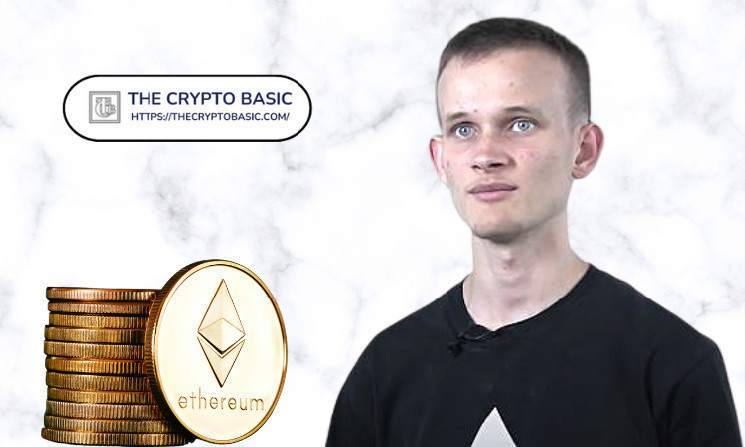Ethereum Co-Founder Vitalik Buterin Unveils Future Vision at 10th Global Blockchain Summit.
Ethereum Co-Founder Vitalik Buterin Unveils Future Vision at 10th Global Blockchain Summit October 17, 2024 – Shanghai, China — The highly anticipated 10th Global Blockchain Summit, hosted by Wanxiang Blockchain Labs, kicks off with a keynote address from Ethereum co-founder Vitalik Buterin.
Reflecting on Ethereum’s evolution since its inception, Buterin shared insights into the platform’s progress and laid out an ambitious roadmap for its future.
One of the key takeaways from his speech was Ethereum’s goal to exceed 100,000 transactions per second (TPS) using Layer 2 (L2) technology and reduce cross-chain transaction times to just 2 seconds.
Ethereum’s Decade-Long Journey
In his speech, Buterin recounted Ethereum’s journey since its early days. Launched in 2015, Ethereum has grown from a novel blockchain platform into a powerful decentralized network that supports decentralized finance (DeFi), non-fungible tokens (NFTs), and a range of other blockchain-based applications.
“If you’ve listened to my talks in 2015, 2016, or 2017, you’ll notice that the content hasn’t changed much,” Buterin remarked. “Our primary goal has always been to improve Ethereum’s technology.
In 2022, we completed the full transition from Proof of Work (PoW) to Proof of Stake (PoS),” he continued, reflecting on the platform’s pivotal shift. He emphasized how the core areas of scalability, privacy, zero-knowledge proofs, and security have been at the forefront of Ethereum’s development over the past decade.
Achieving Scalability: The Road to 100,000 TPS
One of the major highlights of Buterin’s speech was Ethereum’s ambitious plan to achieve over 100,000 TPS using L2 solutions.
He pointed to the progress already made in reducing transaction costs and improving confirmation speeds as crucial steps toward achieving this goal.
Ethereum’s L2 solutions have drastically lowered transaction fees from the sky-high levels seen in 2020 and 2021. Back then, Layer 1 transaction fees ranged from $5 to $10, and Buterin himself recounted instances where he paid up to $800 for a single transaction.
“By 2022 and 2023, L2 solutions appeared, reducing fees dramatically,” Buterin noted. “Transaction fees have dropped from $0.20 to as low as $0.01, which is crucial for many applications.” These L2 solutions, combined with the recent introduction of Ethereum’s EIP-4844, which provides more data space for L2, are positioning Ethereum to meet the demands of mass adoption.
Cross-Chain Transfers in 2 Seconds: A Unified User Experience
In addition to scalability improvements, Buterin outlined Ethereum’s vision to enhance cross-chain interoperability. “Our goal is to achieve cross-chain transfers between Ethereum and other blockchains within 2 seconds,” he explained. This would provide users a more seamless and unified experience, allowing them to transfer assets and data between chains quickly and efficiently.
User Experience and Global Adoption
Buterin also touched on Ethereum’s efforts to improve user interfaces, a key factor in making decentralized applications (dApps) more accessible to the general public. Since 2015, Ethereum’s user interfaces have evolved dramatically.
In countries like Argentina and Turkey, where digital currency adoption is rising, Ethereum is focusing on improving user experiences to encourage more widespread use of dApps. “Over 10% of the population in these countries holds digital currency,” Buterin highlighted, suggesting that smooth, user-friendly experiences will be essential in transitioning these users to decentralized systems.
Prioritizing Cross-Chain Security
While the Ethereum Virtual Machine (EVM) remains critical to the platform’s infrastructure, Buterin stressed that the future focus would increasingly shift toward cross-chain security.
As Ethereum expands and integrates with other blockchains, ensuring secure cross-chain interactions will be essential to the platform’s long-term success. “Cross-chain security is becoming more critical than the EVM,” Buterin stated, emphasizing that Ethereum’s infrastructure is growing in scope and complexity.
Ethereum aims to create a more resilient and interconnected blockchain ecosystem by prioritizing security across different blockchains.
Ethereum’s Next Chapter
As Ethereum looks toward the future, Buterin’s vision is clear: achieving massive scalability, improving cross-chain transfers, enhancing user experiences, and ensuring cross-chain security will be at the heart of Ethereum’s development.
The platform’s ongoing expansion is setting the stage for it to remain a dominant player in the blockchain space. With these advancements, Ethereum is positioning itself not only as a leader in decentralized finance but also as a driving force behind the next generation of blockchain innovation.
Read the full article here

